Nothing to Write Home About
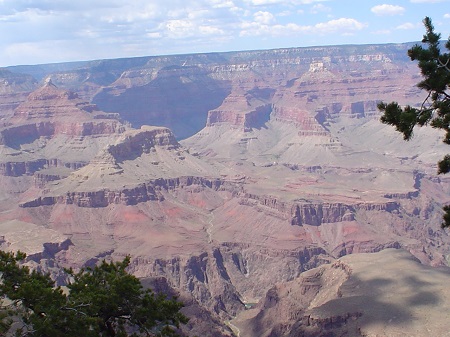 Joseph C. Ives explored the Grand Canyon and Colorado River region in 1857 and 1858. He thought it was nothing to write home about. Although he admired the scenery, he described it as “altogether valueless.” He could not imagine anyone wanting to visit there.
Joseph C. Ives explored the Grand Canyon and Colorado River region in 1857 and 1858. He thought it was nothing to write home about. Although he admired the scenery, he described it as “altogether valueless.” He could not imagine anyone wanting to visit there.
I wonder what he would think if he could see the Grand Canyon’s millions of visitors today.
Nothing to write home about means something is nothing special.
It is:
- Boring
- Not very good
- Unimportant
The expression can describe almost anything, including:
- Food
- Income
- Places
- Activities
- Books
- Movies
We don’t always agree on what is nothing to write home about.
For example, do you enjoy:
- Seafood?
- A job with regular hours?
- The Grand Canyon?
- Tennis?
- John Grisham books?
- Hallmark Christmas movies?
Some of us like these. Others of us think they are for the birds.
Caring for one another is always something to write home about.
Jesus set the example of love in action. We do well to follow, through thick and thin.
“Now about your love for one another we do not need to write to you, for you yourselves have been taught by God to love each other” (1 Thessalonians 4:9 NIV).
Thanks to Jim Graybeal for the suggestion.
Do you have an expression you want explained? If so, please comment below.
Subscribe to receive my weekly posts by email and receive a free copy of “Words of Hope for Days that Hurt.”
If you enjoyed this post, please share it with your friends.
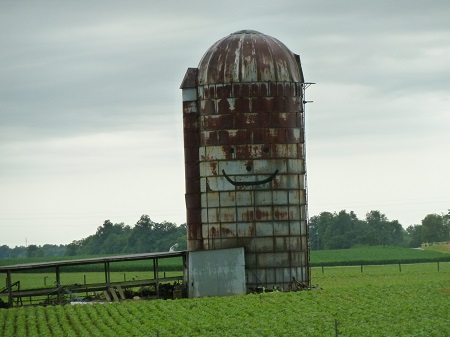 I remember the first time I saw this silo. It looked like it would burst with joy. A freshly painted smiling face greeted every passing traveler.
I remember the first time I saw this silo. It looked like it would burst with joy. A freshly painted smiling face greeted every passing traveler. We can put lipstick on a pig, but it is still a pig.
We can put lipstick on a pig, but it is still a pig. Recently a cousin wrote, “Our roots run deep and are closely intertwined.” She meant our family has a long and strong history of close relationships. We may not see one another often, but our ties remain. We can depend on mutual love and support.
Recently a cousin wrote, “Our roots run deep and are closely intertwined.” She meant our family has a long and strong history of close relationships. We may not see one another often, but our ties remain. We can depend on mutual love and support.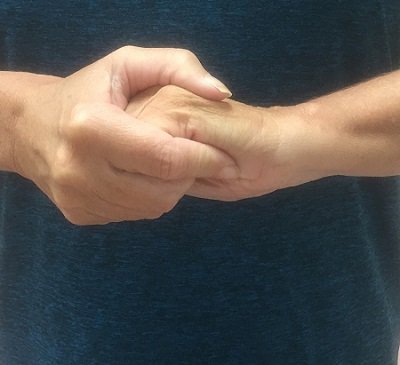 We cannot sleep. We cannot eat, or we eat too much. We wring our hands until the skin almost comes off.
We cannot sleep. We cannot eat, or we eat too much. We wring our hands until the skin almost comes off.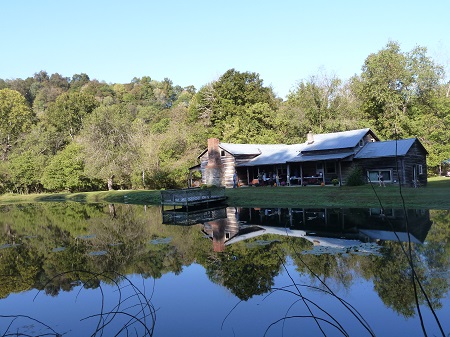 If anything is plumb, it is perfectly straight.
If anything is plumb, it is perfectly straight. 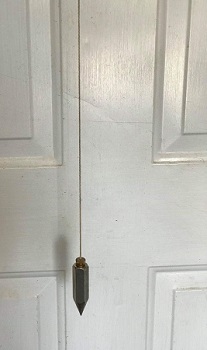 A plumb line helps measure whether anything is straight or plumb.
A plumb line helps measure whether anything is straight or plumb. 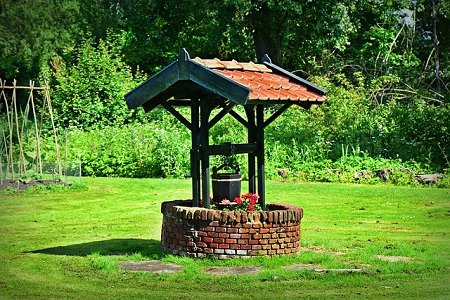 As a little girl, I loved to visit relatives who had a well with a bucket. The bucket was tied to the end of a rope. To get water, we had to:
As a little girl, I loved to visit relatives who had a well with a bucket. The bucket was tied to the end of a rope. To get water, we had to: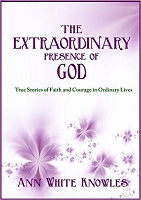 Subscribe to receive my weekly posts by email
Subscribe to receive my weekly posts by email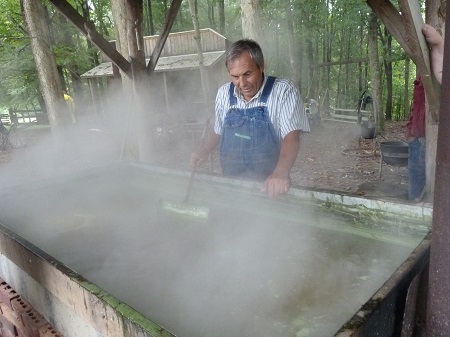 I have been told I am as slow as molasses. I have also been told I go too fast. I suppose my speed depends on what I do.
I have been told I am as slow as molasses. I have also been told I go too fast. I suppose my speed depends on what I do. Pouring molasses is also a slow process.
Pouring molasses is also a slow process. On my first trip to Cañon City, Colorado, my husband and I walked across the nearby Royal Gorge Bridge. Several people use that bridge as a jumping-off place. They bungee jump from the highest bridge in the United States.
On my first trip to Cañon City, Colorado, my husband and I walked across the nearby Royal Gorge Bridge. Several people use that bridge as a jumping-off place. They bungee jump from the highest bridge in the United States. After a long hard day, most of us look forward to work in the short rows.
After a long hard day, most of us look forward to work in the short rows.